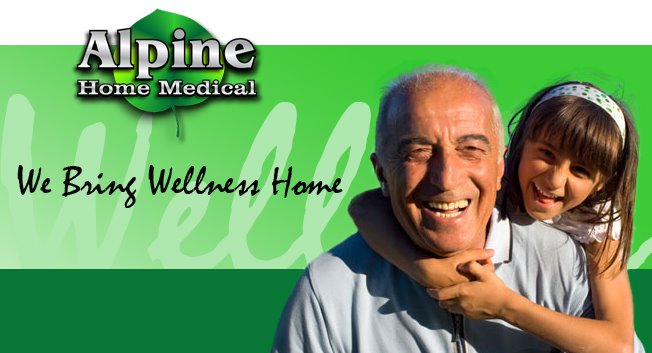
The American Sleep Apnea Association calls upon all who are concerned about sleep apnea-health professionals, patients, and their advocates-to make special efforts on April 18 to alert the public to this serious, chronic, life-shortening disease. An estimated 18 million Americans or more are believed to have this disease, and three-quarters of them don’t know it.
Untreated sleep apnea in adults can lead to hypertension, chronic heart failure, stroke, sudden death, diabetes, depression, fibromyalgia, excessive daytime sleepiness, and could cause automobile accidents, and other serious and often fatal consequences.
Untreated sleep apnea in children can lead to hyperactivity, compromised immune systems (allergies), delayed cognitive development, and an inability to meet standard growth goals.
"Every day is sleep apnea awareness day at the ASAA (American Sleep Apnea Association)," said executive director Edward Grandi, "but we designated April 18th as Sleep Apnea Awareness Day because we believe that educating people about sleep apnea’s dangers is critical."
April 18, 1981 is the day The Lancet, the respected British medical journal, published a ground-breaking article describing the invention of the Continuous Positive Airway Pressure (CPAP) machine by Dr. Colin Sullivan, an Australian respiratory physician and a professor of medicine at the University of Sydney.
"CPAP therapy revolutionized the treatment of sleep apnea," Ed Grandi said.
Prior to Sullivan’s discovery, the only effective treatments for severe sleep apnea were, in some cases, radical weight loss or major surgery. The sleep world has come a long way with the modern transition from frightening procedures such as a tracheotomy to the current use of CPAP to help control breathing.
Sleep apnea’s most frequent form is obstructive sleep apnea when the sleeper’s tongue and soft palate fall back against the back of the throat closing off the airway so firmly that the sleeper doesn’t fully inhale in repeated episodes that last 10 seconds or longer. In severe sleep apnea patients, the episodes can recur hundreds of time during the night, giving rise to serious impairment due to repeated oxygen deficiency.
Since those early days of positive airway pressure therapy three decades ago, many refinements to the device have been introduced and there exist a variety of new therapies, with others in development.
None of the therapies, however, can help the 13 million-plus people who have sleep apnea and are unaware of their medical condition or don’t seek help early for themselves or their children. Symptoms may include regularly awakening exhausted after a full night’s sleep, snoring frequently or loudly, or being seriously overweight; however, some sufferers of sleep apnea have none of these characteristics. A sleep study conducted by qualified health care providers in a sleep laboratory or in the home bedroom is the only conclusive way to determine if a person has sleep apnea.
Untreated sleep apnea in adults can lead to hypertension, chronic heart failure, stroke, sudden death, diabetes, depression, fibromyalgia, excessive daytime sleepiness, and could cause automobile accidents, and other serious and often fatal consequences.
Untreated sleep apnea in children can lead to hyperactivity, compromised immune systems (allergies), delayed cognitive development, and an inability to meet standard growth goals.
"Every day is sleep apnea awareness day at the ASAA (American Sleep Apnea Association)," said executive director Edward Grandi, "but we designated April 18th as Sleep Apnea Awareness Day because we believe that educating people about sleep apnea’s dangers is critical."
April 18, 1981 is the day The Lancet, the respected British medical journal, published a ground-breaking article describing the invention of the Continuous Positive Airway Pressure (CPAP) machine by Dr. Colin Sullivan, an Australian respiratory physician and a professor of medicine at the University of Sydney.
"CPAP therapy revolutionized the treatment of sleep apnea," Ed Grandi said.
Prior to Sullivan’s discovery, the only effective treatments for severe sleep apnea were, in some cases, radical weight loss or major surgery. The sleep world has come a long way with the modern transition from frightening procedures such as a tracheotomy to the current use of CPAP to help control breathing.
Sleep apnea’s most frequent form is obstructive sleep apnea when the sleeper’s tongue and soft palate fall back against the back of the throat closing off the airway so firmly that the sleeper doesn’t fully inhale in repeated episodes that last 10 seconds or longer. In severe sleep apnea patients, the episodes can recur hundreds of time during the night, giving rise to serious impairment due to repeated oxygen deficiency.
Since those early days of positive airway pressure therapy three decades ago, many refinements to the device have been introduced and there exist a variety of new therapies, with others in development.
None of the therapies, however, can help the 13 million-plus people who have sleep apnea and are unaware of their medical condition or don’t seek help early for themselves or their children. Symptoms may include regularly awakening exhausted after a full night’s sleep, snoring frequently or loudly, or being seriously overweight; however, some sufferers of sleep apnea have none of these characteristics. A sleep study conducted by qualified health care providers in a sleep laboratory or in the home bedroom is the only conclusive way to determine if a person has sleep apnea.
Edward Grandi
American Sleep Apnea Assn.
American Sleep Apnea Assn.





